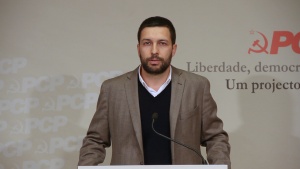1. The approval by the European Council of the Agreement on the Withdrawal of the United Kingdom from the European Union (EU) and the Political Declaration about the future EU-UK relations do not mean the end of this process, as the British Parliament and the European Parliament have yet to pronounce themselves.
2. While the conclusion of this process is still uncertain, PCP reaffirms four central premises of its analysis and position:
- The will of the British people must be respected and correctly interpreted, and not defrauded or distorted. That is the only path that respects democracy and sovereignty;
- The withdrawal of the UK from the UE should not be used, in the name of alleged “adjustments” or future “impacts”, to intensify attacks upon the social and labour rights, in the United Kingdom or other States in the European Union;
- Regardless of the final outcome of this processes, the rights of migrant workers, namely Portuguese citizens working and living in the United Kingdom, must be ensured;
- The Portuguese Government should take measures to guarantee, under any scenario, our national interests and to develop bilateral relations with the United Kingdom that are mutually advantageous and respect the sovereignty the rights of peoples in of each country.
3. PCP considers that the form and content of the negotiations tends to deny some of these premises.
The documents approved today bind this Country to an agreement that, on several issues, duplicates the pillars of the process of capitalist integration and does not answer the aspirations of the workers and British people that were the basis of their sovereign decision.
By affirming a “close collaboration” in the promotion of neoliberal, security and military policies, the agreement achieved tries to limit or even hinder any progressive option of withdrawal of the United Kingdom from the European Union that take advantage of the recovery of sovereignty to defend and advance the respect for the rights of the workers and British people.
PCP expresses its concern given the ambiguity of the British Prime Minister’s declarations regarding the effective respect for the rights of Portuguese workers living and working in the United Kingdom, rights than must be firmly defended by the Portuguese Government.
4. The negotiation process of withdrawal of the United Kingdom was marked —and may continue to be marked— by pressures and blackmail, mainly by the EU and its institutions, who have not yet cast aside an attempt to revert the sovereign decision of the British people.
As PCP alerted (and the documents now approved confirm), the European Union used the negotiation process to hinder and sidestep the sovereign decision of the British peole and tries the affirm the vision, which PCP rejects, than regarding the relations among States in Europe there is no alternative to the political, economic and ideological framework of the European Union.
However, what realities clarifies and the decision of the British people expresses is the unsustainability of an exhausted process of integration, which doesn’t provide answers to the rights and aspirations of peoples, and furthermore jeopardizes them, originates injustices and asymmetries, and fosters the far-right.
5. PCP states that there is an alternative to the neoliberal, federalist and militarist policies of the European Union. Another Europe is possible. Other frameworks of relationship are possible, namely bilateral and multilateral relations between sovereign States. A relationship based on mutual respect, equality of rights, cooperation, solidarity, reciprocal development, social justice, and peace. A trajectory built with the development and reinforcement of the worker’s struggle; with the rejection of policies, impositions and constraints imposed by the European Union; and the affirmation of the sovereign right of peoples to development and social progress.
6. PCP expresses its solidarity to communists and other progressive forces in the Britain who have increasingly affirmed a progressive alternative project of withdrawal of the United Kingdom from the EU.
